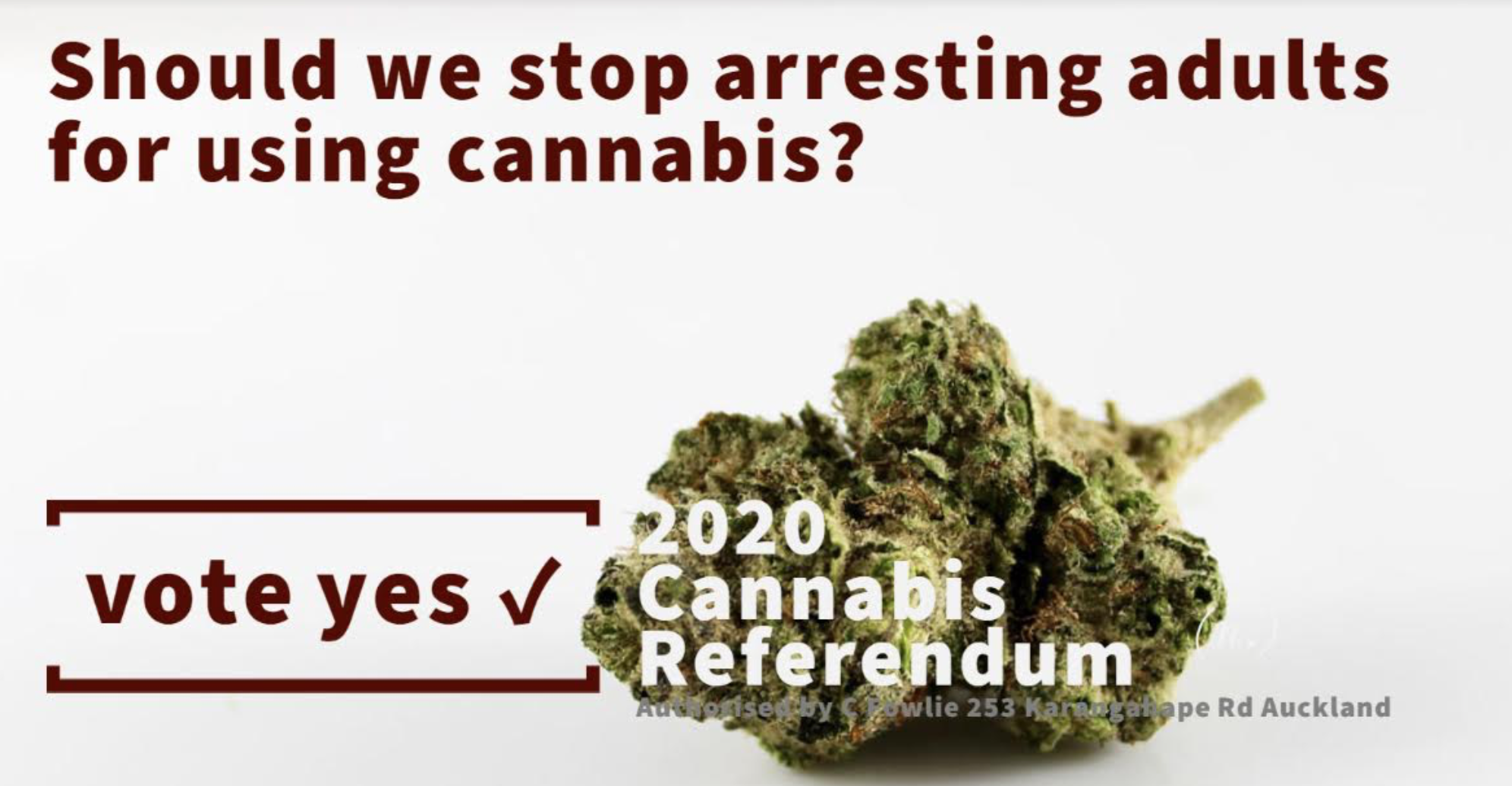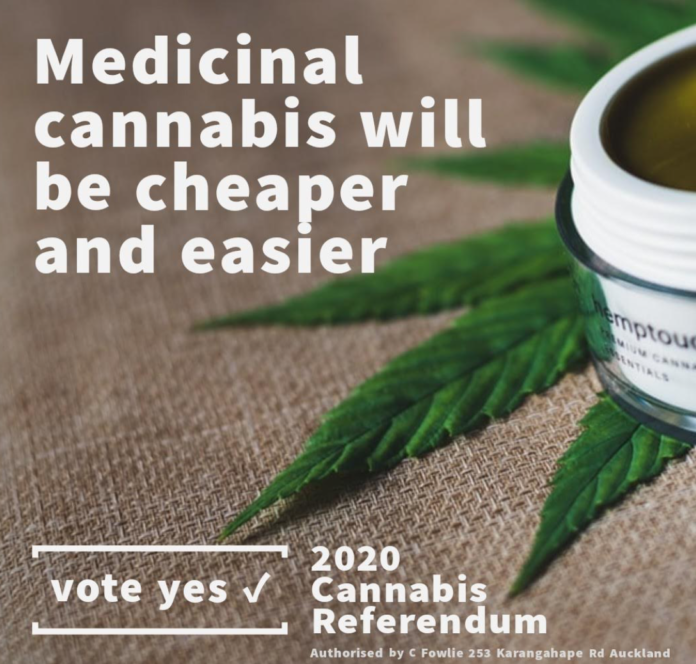In the midst of this coronavirus lockdown, it was easy to miss that New Zealand’s new medicinal cannabis scheme has gone live. Regulations took effect on 1 April so now any doctor can prescribe cannabis products to any patient.
Local production is also allowed – but no new cannabis products are available yet. This has left many doctors and patients wondering what the scheme really means for them.
NORML has long advocated to make the medicinal use of cannabis legal. We first raised the issue of medicinal use in the 1970s! So I talked to our patient representative Rebecca Reider, who also served as the consumer representative on the Government’s Medicinal Cannabis Advisory Group.
“It’s so close and so far,” Rebecca told me. “The progress is exciting. But many patients are worried that legal cannabis products will continue to be too expensive, forcing many of us to keep relying on illegal sources.”
“Every patient I’ve been in touch with is pulling strongly for a ‘yes’ vote in the referendum to make safe, legal cannabis more accessible.”
Patient advocacy group Medical Cannabis Awareness New Zealand Inc has also called the regulations “bittersweet”, noting excellent gains around prescribers and access pathways, but leaving the patients with an uphill battle for access.
So what has changed?
The New Zealand Government legalised medicinal cannabis in December 2018, and passed regulations to enable the scheme in December 2019. These regulations, which took effect on 1 April, are the third main plank of the scheme.
The other planks have already taken effect: there is a statutory defence for patients undergoing palliative care to let them legally obtain, possess and use illicit cannabis, CBD Products were de-scheduled so they are no longer controlled drugs and any GP can prescribe them.
The new Medicinal Cannabis Regulations define several important aspects of the scheme:
- A new Medicinal Cannabis Agency to oversee the scheme, including establishing minimum quality standards for products, licensing local production, and assessing products for distribution;
- Changing the requirements for prescribers so that they no longer require Ministerial consent to prescribe medicinal cannabis products. In short this means any doctor can prescribe cannabis products to any patient, for any reason;
- Allowing the import and export of medicinal cannabis products;
- Allowing hemp and illicit cannabis genetics to be transferred into the medicinal scheme.
The minimum quality standards and requirement for batch testing and labeling will be reassuring for many patients, and will make doctors more likely to have the confidence to prescribe the products.
Local production is expected to lower costs and ensure a consistency of supply.
In addition, vaporisers intended for using medicinal cannabis can now be legal in New Zealand. This has been done because doctors are now allowed to prescribe herbal forms of cannabis that are intended to be vaped (not smoked).
The Misuse of Drugs Prohibition of Utensils) Notice 2020 sets out that a vaporiser can be imported and sold if it has been approved as a medical device by an overseas regulator (this must be done overseas as there is no capacity to assess them in New Zealand).
This is intended to ensure the vaporiser will be a safe method for administering medicinal cannabis. Vaporisers registered as medical devices can be prescribed by doctors, but are likely to be significantly more expensive than consumer models.
The Ministry of Health warns that other vaporiser devices already on sale in New Zealand “continue to be prohibited from New Zealand and may be confiscated by Customs.”
Patients who are stuck at home or live in remote areas can still access cannabis products, because home delivery by online pharmacies is allowed.
However, patients won’t be able to grow their own yet. For this to happen, New Zealand must vote Yes in the cannabis referendum to be held at the next general election.
When will all this happen?
Some changes took immediate effect, such as the prescriber requirements and allowing vaporisers.
But licensing local production and assessing new products for distribution are likely to take at least several months.
This is to be expected, as the Ministry of Health rather busy – and doing a great job – leading New Zealand’s Covid-19 coronavirus response.
If it all goes well, we could be seeing locally-grown cannabis plants flowering by the end of this year.
What should patients do?
Firstly, familiarise yourself with the new rules and what you can do. The Ministry of Health has a page for consumers. Because medicinal cannabis products will technically count as “unapproved”, they cannot be marketed or advertised.
Then talk to your doctor. They will have an understanding of the new rules and can give you further guidance. If your doctor doesn’t seem up to date, point them to the Ministry of Health’s page for prescribers.
If that fails, go see a specialist cannabis doctor. Several are already operating cannabis clinics and we expect more to open this year.
Finally, help spread the word about voting Yes in the cannabis referendum. This is the only way patients will be able to grow their own. Access will get easier and cheaper for everyone.
Do you want to grow or make medicinal cannabis products?
If you want to work in the industry you need to hold a medicinal cannabis licence or work for a person or company that holds a licence. The licence will specify the types of activities that a licence holder may carry out, such as commercial cultivation of cannabis or manufacture and supply of medicinal cannabis products. For more information see the Ministry of Health’s page for industry and this page on how to apply for a licence.
There are several exciting aspects of the scheme that will lower costs of entry into the industry, and make local production more viable. These include:
- A new “Nursery” licence for seed merchants;
- A new ability to transition illicit genetics, and hemp cultivars, into the medicinal cannabis scheme;
- Lower fees than first proposed;
- Multi-site and multi-activity licences;
- A new “pre-vetting” process that allows tentative approval on paper before going further (this could also be used to raise finance or bring partners on board);
- Lower security requirements for cannabis that is below 1% THC;
- Applicants with drug convictions aren’t ruled out; they can be licensed with approval from the Minister.
Read the regulations and think about how you will operate while also being a viable business. The cultivation space is likely to be crowded and many people don’t seem sure what they will do. You’ll need access to seed, and a buyer for the end crop. The biggest missing piece of the puzzle is manufacturers who can take plant material and turn it into products that meet the quality standard. Smart operators will consider these issues before applying.

For more information, see:
- Ministry of Health’s Medicinal Cannabis Agency
- New Zealand Medicinal Cannabis Council
- Medicinal Cannabis Awareness NZ Inc
- Medsafe guidance on the Use of Unapproved Medicines and Unapproved Use of Medicines.
***
Chris Fowlie is the CEO of Zeacann Limited, a medicinal cannabis producer; co-founder of the New Zealand Medical Cannabis Council; president of the National Organisation for the Reform of Marijuana Laws NZ Inc; co-founder of The Hempstore Aotearoa; resident expert for Marijuana Media on 95bFM; cannabis blogger for The Daily Blog, and court-recognised independent expert witness for cannabis. The opinions expressed here are his own.





